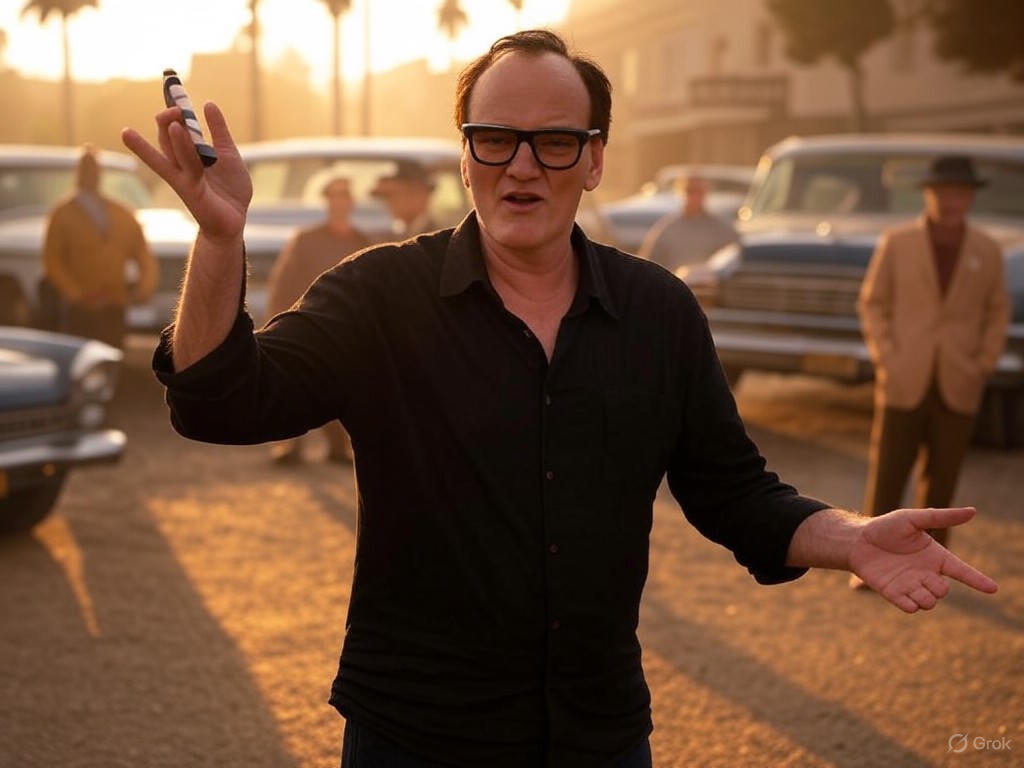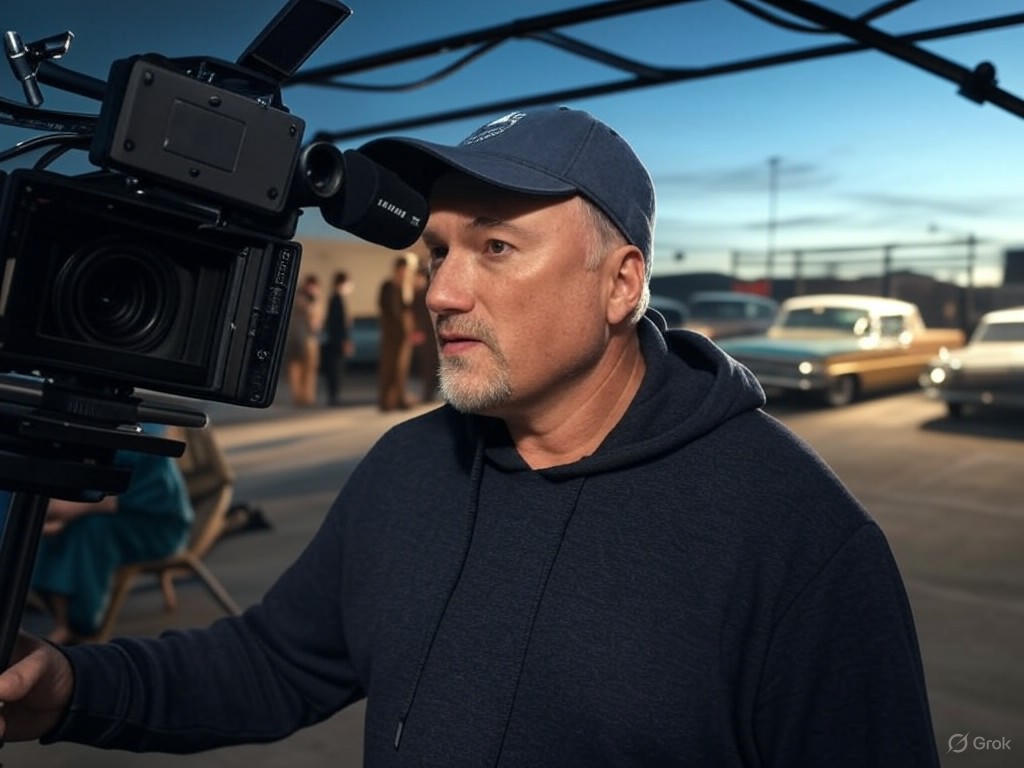Once Upon a Time Sequel: Tarantino’s Next Chapter
In the grand tapestry of American cinema, where dreams are spun into silver screens and legends are born anew, the whispers of a sequel to Once Upon a Time in Hollywood have ignited a firestorm of excitement. Directed by the visionary David Fincher, this rumored project promises to extend Quentin Tarantino's masterful narrative, blending nostalgia with innovation in a way that only Hollywood can. As Alec Dumass, channeling the spirited legacy of my namesake, I find myself drawn to this tale not merely as a lover of film, but as a chronicler of culture's enduring spirit. Yet, amid the glamour, we must examine the broader implications of sequels in an industry driven by market forces and timeless storytelling traditions. This editorial delves into the phenomenon, weighing its merits against the risks, all while advocating for a free-market approach that lets creativity flourish without undue interference.
The Spark of Speculation: Tarantino, Fincher, and the Sequel's Siren Call
The mere hint of a Once Upon a Time in Hollywood sequel has Hollywood buzzing like a beehive in springtime. Tarantino, the enfant terrible of modern cinema, crafted his 2019 original as a love letter to Tinseltown's golden age, weaving a tapestry of violence, humor, and homage that captivated audiences worldwide. Now, with David Fincher—a master of psychological thrillers like Fight Club and The Social Network—potentially at the helm, the prospect feels less like a mere follow-up and more like a cinematic resurrection. Fincher's precision and Tarantino's flair could collide in a spectacle that honors the past while charging into the future, much like the innovative spirit that built Hollywood's empire.
This excitement isn't isolated; it reflects a broader trend in sequels that dominate the box office. According to Variety, sequels accounted for over 40% of the top-grossing films in the past five years, driven by fan loyalty and proven intellectual property. Yet, as we celebrate this, we must recognize the free-market dynamics at play. Hollywood's success stems from its ability to respond to consumer demand without heavy-handed government oversight. Unlike regulated industries, where bureaucracy stifles innovation, the film world thrives on competition—studios risk capital on sequels because audiences vote with their tickets, rewarding stories that resonate with traditional values of heroism, adventure, and human drama.

Quentin Tarantino captures a pivotal scene from Once Upon a Time in Hollywood, embodying the raw energy that could define its sequel.
Analyzing the Sequel Surge: Innovation or Repetition?
Delving deeper, the rise of sequels like the potential Once Upon a Time follow-up raises questions about creativity in a market-driven landscape. On one hand, they offer a blueprint for success: Tarantino's original film, with its blend of historical fiction and pulp aesthetics, grossed over $374 million globally, as reported by The Numbers. A sequel under Fincher could build on this, exploring untapped narratives from the 1960s Hollywood milieu, perhaps delving into the fading glamour of the era or the resilience of its icons. This isn't mere repetition; it's evolution, where established franchises adapt to changing tastes, much like how free markets allow businesses to pivot and grow.
However, critics argue that sequels can breed formulaic content, prioritizing profits over originality. Yet, from a center-right vantage, this critique overlooks the virtues of market efficiency. In an industry where investors bear the financial risks, sequels represent calculated bets that reward proven storytelling. As The Wall Street Journal notes, the sequel boom has injected billions into the economy, creating jobs and fostering entrepreneurship without relying on subsidies or government bailouts. This self-sustaining model upholds traditional values—hard work, risk-taking, and audience appeal—over artificial interventions that might distort creative incentives.
Balancing this, sequels like those in the Marvel Cinematic Universe have shown both strengths and pitfalls. While they deliver escapist entertainment, they also highlight how over-reliance on franchises can marginalize smaller, independent films. Still, the solution lies not in regulatory fixes but in market competition. Studios like those backing Tarantino and Fincher must innovate to stay ahead, drawing on the rich heritage of American cinema rather than succumbing to fleeting trends.
Evidence from the Front Lines: Box Office Realities and Cultural Impact
To substantiate this analysis, let's turn to the evidence. Data from Box Office Mojo, an IMDb affiliate, reveals that Once Upon a Time in Hollywood not only topped charts but also earned critical acclaim, with an 85% approval rating on Rotten Tomatoes. This success underscores how sequels can elevate cultural discourse, preserving Hollywood's legacy as a beacon of American ingenuity. Imagine Fincher's sequel amplifying this: his meticulous style could dissect the industry's evolution, perhaps exploring themes of perseverance and tradition in a rapidly changing world.
Yet, the economic underpinnings are equally compelling. A study by The Hollywood Reporter indicates that sequels generate 25-30% higher returns on investment compared to original films, thanks to built-in audiences and merchandising. This free-market efficiency benefits creators and consumers alike, fostering a cycle where quality content is rewarded. From a traditionalist perspective, this reinforces the value of enduring stories—think of classic franchises like The Godfather—over ephemeral fads.

David Fincher orchestrates a tense moment on set, hinting at the psychological depth he could bring to a Once Upon a Time sequel.
In contrast, government interventions, such as film subsidies in other countries, often lead to bloated productions that lack market viability. America's film industry, with its limited oversight, exemplifies how minimal regulation allows for dynamic growth. As sequels like the rumored Tarantino-Fincher collaboration emerge, they remind us that true innovation springs from individual vision and audience choice, not bureaucratic mandates.
Charting Hollywood's Future: A Call for Market-Driven Storytelling
As we conclude this cinematic odyssey, the prospect of a Once Upon a Time in Hollywood sequel stands as a testament to Hollywood's enduring spirit. Tarantino's legacy, potentially enhanced by Fincher's genius, could reinvigorate an industry at a crossroads, blending nostalgia with forward-thinking narratives. Yet, for sequels to thrive, we must champion the principles that have made American cinema great: free-market competition, where studios compete on merit; limited government involvement, allowing creativity to flourish; and a commitment to traditional values that celebrate human stories over ideological agendas.
In this light, the sequel trend is not a crutch but a catalyst. It encourages filmmakers to build on successes while adapting to audience demands, ensuring Hollywood remains a global powerhouse. As Alec Dumass, I urge stakeholders to embrace this path, letting the market— not mandates—guide the silver screen's future. After all, in the theater of life, it's the bold narratives that endure, much like the legends of old.

